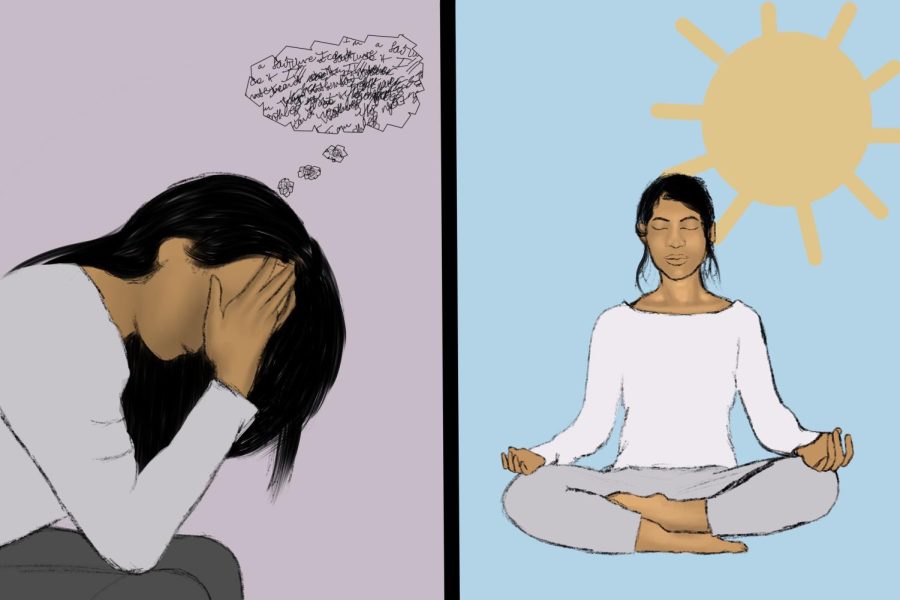Silence your inner critic
Assistant Opinion Editor Arielle Chin writes that it is important for students to be less critical of themselves.
March 13, 2023
We all have our own inner critic whether we realize it or not. It’s the looming voice in our head that enjoys polluting our mind with negative ideas. As high schoolers, many of us have experienced the feeling of not being good enough.
In a 2019 study by Pew Research Center, 61% of teens say they feel a lot of academic pressure, 29% express insecurities regarding appearance, 28% say they fixate on fitting in, 21% express pressure to be involved in extracurricular activities and 21% feel pressured to excel in sports.
The notion that we must be able to satisfy the expectations placed upon us by our teachers, friends, peers, family, and most notably ourselves, negatively affects our self image and leads us down a path of doubt and self-sabotage.
Oftentimes, it is difficult to refrain from comparing ourselves to others because the perpetuating stereotype of “the perfect teenager” is constantly being reinforced on social media and around school. Whether it’s hearing the perfect scores our classmates receive on their assessments or seeing our peers get accepted into their dream college, preventing the comparison between ourselves and others is not an easy feat.
Sometimes, our inner critic can push us to be our “best selves” by reminding us to keep working hard in order to achieve our dreams. However, when we fall short of those goals we set for ourselves, our inner critic can become unhealthy and toxic by cementing the idea that we are a failure. It is important to find a balance between pushing ourselves to the best of our ability while still accepting that we can fail to meet our original goals.
According to an article published on “Verywell Mind,” a website dedicated to mental health and psychology awareness, negative thoughts can affect our mood and lead to mental health conditions such as social anxiety, depression, stress and low self-esteem. Although silencing our inner critic may take immense patience and perseverance, the long-term goal is to ultimately free ourselves from the restraints of negative beliefs and boost our confidence and compassion.
According to a “Forbes” article titled, “Taming Your Inner Critic: 7 Steps To Silencing The Negativity,” practicing self-awareness, empathy and improvement are all beneficial ways to combat negative mindsets. Practicing mindfulness can help alleviate negative emotions and boost self-awareness by allowing one to be more in tune with their intrusive thoughts. When we recognize the reason behind how we are feeling, we can take control over those thoughts and replace them with realistic and positive truths.
Coping with criticism and accepting our flaws does not mean we need to deceive ourselves and invalidate our own emotions. In actuality, it requires us to pause, take a step back and set realistic and achievable goals for ourselves. We need to provide ourselves with leniency by allowing room for growth in all areas of our life.
It is important to remember that we are all humans who are prone to make mistakes. Everyone has to go through the same process of growing up and adjusting to new situations, as well as partaking in new experiences. We are shaped by our own unique attributes and personalities, therefore, we shouldn’t look towards others’ achievements and accolades as a sign that we are any less than they are. After all, it is fallacious to believe that we can be “perfect” human beings in a world composed entirely of imperfect individuals.











